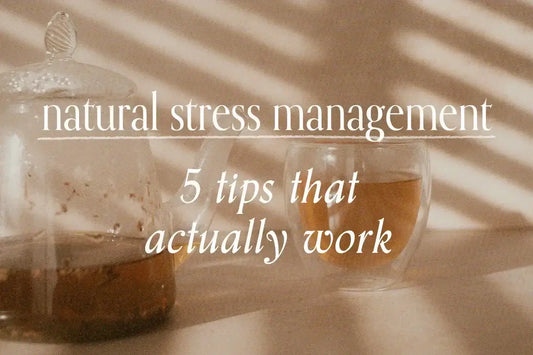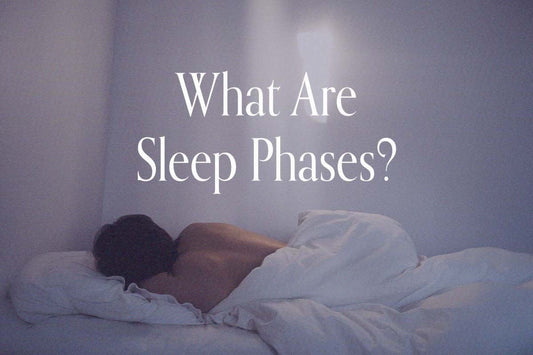We’ve all experienced it at some point in our lives. It’s 3 am and your mind won’t stop racing, you’re still tossing and turning, and the likelihood of a good night’s sleep is straying further and further.
The next day you wake up feeling anxious, fatigued and stressed. All of your work and routines are suffering from your inability to get some shut-eye. When it’s time for bed your brain won’t stop worrying about everything you didn’t do today.
You can’t sleep because you’re stressed, and you’re stressed because you can’t get to sleep.
This is known as the sleep stress fatigue cycle.
Stress
Stress is your body’s physiological response to a perceived threat, otherwise known as a stressor. When facing a threat, you’ll automatically go into flight-or-fight mode and your brain will release adrenaline and cortisol. This response can cause elevated heart rate, increased body temperature, sweating, and more. Once the threat is over, your stress response will begin to ease up until it disappears.
Chronic stress occurs when the stressors are long-term, and not easy to avoid. This can include a long-term project, a demanding boss, challenging deadlines, relationship troubles and even exams. Chronic stress has been found to contribute to a wide range of mental and physical illnesses including anxiety disorders, depression, heart disease and more.
What’s The Relationship Between Stress & Sleep?
Stress and sleep have a strong synergy with one another, so much so, that it’s fall under a bi-directional cycle. This means that they both feed into and encourage each other, resulting in a cycle with no root cause.
It Keeps You Awake for longer
Achieving good quality sleep when you’re stressed can be almost impossible due to sleep latency. This happens because stress increases the amount of time it takes for you to actually fall asleep.
Being unable to fall asleep under stress is an evolutionary response. Which makes sense if there was a tiger under your bed. In this case, your levels of chronic stress mean that your body and brain are perceiving a constant danger, making it difficult to get to sleep as a basic survival mechanism.
Rumination can also have this effect. This is a symptom of anxiety that occurs when you’re unable to focus on anything but the negative emotions and outcomes. The more you ruminate, the more time it takes to fall asleep.
It Disturbs The Sleep You Get
Although you may find yourself drifting off to sleep, you’re not in the clear yet. Chronic stress can lead to poor sleep quality and sleep fragmentation, meaning you wake up multiple times during the night. This occurs when the brain struggles to process heavy loads of stress, typically when the usual outlets aren’t possible, like exercising, spending time with friends, or meditating.
Lack of Sleep Can Contribute to Worsened Stress
This is where the cycle gets harsh - when you’re experiencing prolonged low-quality rest, your stress is likely to increase. Studies have found that people who sleep better experience fewer negative emotions and find it easier to recover from a stressful experience.
Poor sleep quality and deprivation are said to influence cortisol levels and systemic inflammation. Fragmented sleep has a significant impact on these two factors, as can going to sleep at times that aren’t in line with natural circadian rhythms.
How to break the cycle:
- Only use the bed for sex and sleep: Sleep experts recommend keeping the bedroom dark, cool and quiet, in addition to avoiding working, eating and watching tv in bed.
- Set aside worry time: Setting aside time in the afternoon to write down all the things you’re worried about will help to shift the negative emotions away from your bedtime.
- Relax with herbal tea: Create a relaxing, unstimulating bedtime routine that includes reading a book, dimming the lights, or unwinding with herbal tea. Try our Native Sleep Tea or Native Relaxation Tea 30 minutes before bed to help calm your overstimulated mind, relax the body, and promote deep, uninterrupted sleep.
- Have a hot bath or shower: Emerging your body in warm water will bring blood flow away from your core and towards your surface, once you’re out, the blood flow will quickly rush back to your core, having a sedative-like effect.




